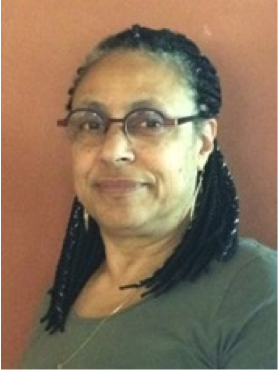The Illusion and Elusiveness of Whiteness: Between Politics and PolemicsPosted in Anthropology, Articles, History, Judaism, Media Archive, Passing, Politics/Public Policy, Religion, United States on 2018-12-27 05:08Z by Steven |
The Illusion and Elusiveness of Whiteness: Between Politics and Polemics
ISGAP: Flashpoint
Institute for the Study of Global Antisemitism and Policy
2018-12-04, Flashpoint 52
Katya Gibel Mevorach, Professor in the Anthropology Department; Chair of the American Studies Concentration
Grinnell College, Grinnell, Iowa
 Katya Gibel Mevorach is a Professor in the Anthropology Department and the Chair of the American Studies Concentration at Grinnell College in Grinnell, Iowa. She earned her PhD in Cultural Anthropology from Duke University. Prof. Gibel Mevorach received her BA and MA in African Studies from the Hebrew University of Jerusalem in Israel. |
The tenor of “identity politics and polemics” has lost listeners even as the tone of debates has intensified: there is a dialectic of tuning in and out of conversations about whether Jews who look white are, in fact, White? The argument, which gained media traction over the last twenty years – a relatively short period of time for some, but a lifetime for millennials – latched on to the phrase “white Jews” set in juxtaposition to “Jews of color” and “Black Jews.” These expressions may have insinuated themselves into the Jewish forum, but they foolishly ignore Jewish and general history. Too many Jews overlook the significance of scientific racism in Nazi ideology and among white supremacists as well as the simple fact that in all racist societies, ancestry always trumps appearance. This is a central lesson from places where domestic genocide (e.g., Belfast, Kigali and Sarajevo) confounds “outsiders” who do not “see” physical distinctions that locals presume to be obvious.
“Whiteness” in America is not and has never been self-evident – and that is the point of passing: of not revealing information that would reposition someone from “being white” to “not quite white” or “not white” at all.[1] This difference between looking white (appearance) and being white (an existential registry of racial purity) inspired the subtitle of my book “…not the color of your skin but the race of your kin.”[2] It is this difference that was forcefully communicated by white supremacists in Charlottesville and reiterated in Pittsburgh to the consternation of some Jews who feel entitled to whiteness and cry mea culpa while enjoying its privilege.
The desire to identify as white remains astounding to a few people, like me, who were born in the United States only because one of their Jewish parents was among the lucky few to escape Nazi Europe on a passport listing “Jew” as his or her Race. Once upon a time, not long ago, there was a simple question: are you a Jew or are you white? And the answer might have been: I am a Jew and I am perceived as a white person to the extent that I am not too visibly Jewish [i.e. assimilated]…
Read the entire article here.
